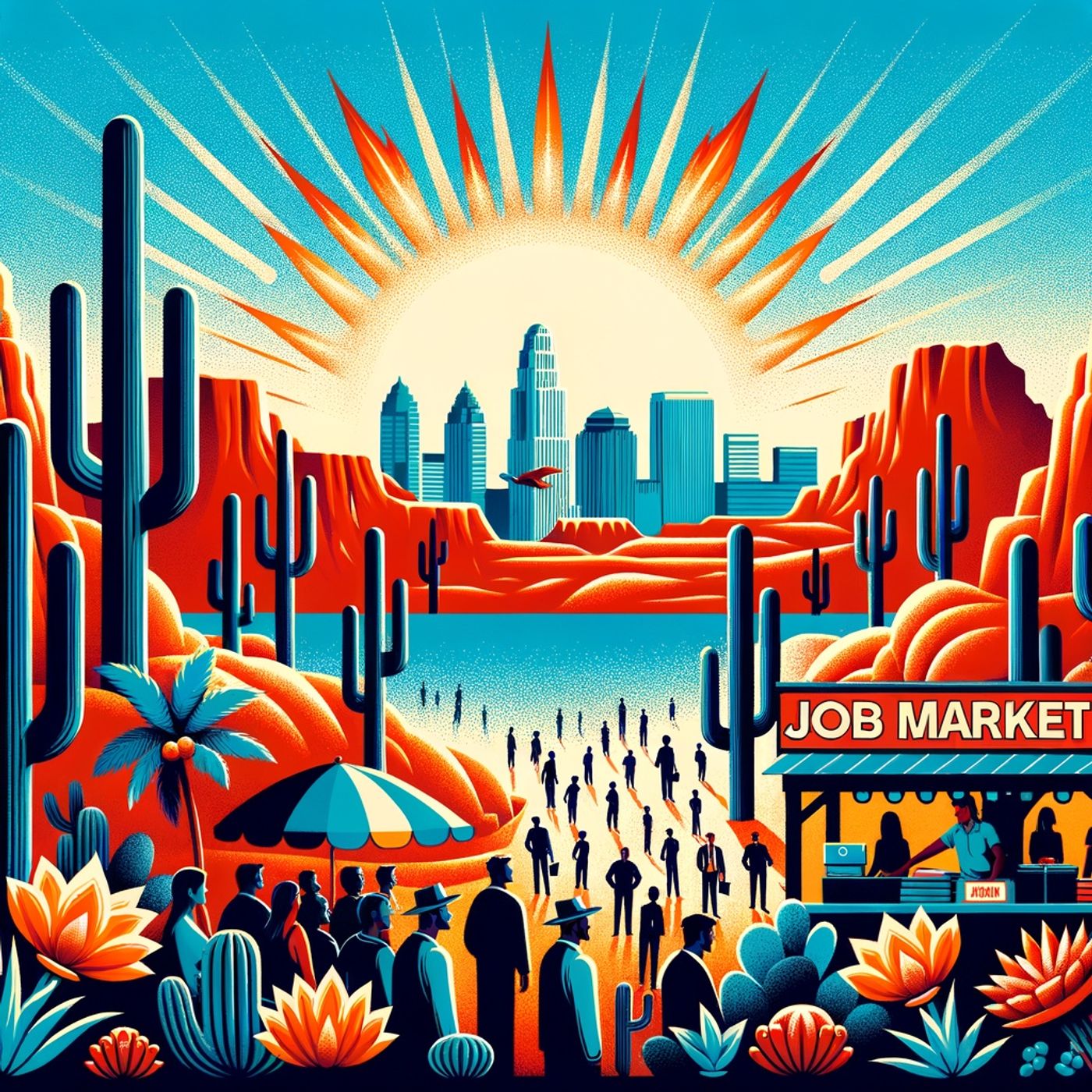Podcast Episode Details
Back to Podcast Episodes
Phoenix's Resilient Job Market: Healthcare, Tech, and Manufacturing Thrive
Phoenix’s job market in late 2025 remains broad and opportunity-rich, with a labor force exceeding two million and steady recovery after a moderate slowdown earlier this year. According to the Arizona Office of Economic Opportunity, the seasonally adjusted unemployment rate for Arizona held at 4.1 percent as of August 2025, roughly matching the national rate. The city’s average wage sits at just below $20 per hour according to ZipRecruiter, but jobs in technology, financial services, and healthcare regularly offer significantly higher pay. Banner Health leads as the city’s top employer with more than 46,000 employees, while Walmart, Amazon, and Kroger also account for a significant share of local jobs as reported by AZ Big Media.
Major sectors driving Phoenix’s employment include healthcare, retail, construction, technology, finance, higher education, and advanced manufacturing. Healthcare’s dominance is evident in statewide figures, with Banner Health, HonorHealth, Dignity Health, Mayo Clinic, Phoenix Children's Hospital, and CVS Health among the region's largest employers. Manufacturing is having a banner year, with Greater Phoenix In Business Magazine highlighting October 2025 as a milestone month for Arizona’s advanced manufacturing expansion. CBRE notes the city’s semiconductor sector is booming, propelled by ecosystem maturity, talent availability, and large recent capital investments. The construction industry, fueled by population and corporate migration, continues to set new records and has led Phoenix to be recently named the U.S. city with the most construction opportunities in 2025.
Though job growth slowed nationally in 2025, as reported by AOL.com, Phoenix and Arizona maintain a positive outlook thanks to ongoing migration, corporate relocation, and business investment. The Arizona Office of Economic Opportunity projects nearly all major sectors will see job gains through 2026. The city is also a center for innovation, with technology companies and start-ups gaining honors at the 2025 Governor's Celebration of Innovation, spotlighting Phoenix as a leader in AI, semiconductors, renewable energy, and automation according to the Arizona Technology Council and Arizona Commerce Authority. The labor market also reflects a substantial increase in remote and hybrid positions, with Robert Half reporting that 27 percent of jobs now have at least some remote component.
Recent government initiatives have focused on addressing worker shortages in critical trades and construction. The BuildItAZ Apprenticeship Initiative launched this year has already added nearly 3,000 new apprentices to Arizona’s talent pipeline and secured further funding to bolster skilled trades job creation. Housing affordability and office-to-residential conversions are also shaping employment patterns and urban commuting, according to Greater Phoenix In Business. Seasonal employment spikes remain during the winter tourism season and summer construction peaks, but the market evolution is pushing longer-term job stability.
Phoenix’s fast-growing companies are being recognized for revenue growth, and sectoral diversification is expanding across the board, as reported by the Phoenix Business Journal. While gaps remain in real-time wage tracking, real estate’s ripple effects across service, retail, and logistics are widely acknowledged. Notably, the city has responded to office vacancy and housing demand through creative adaptive reuse, further driving local employment.
For listeners interested in immediate opportunities, open positions include Warehouse Associate at Fullscript, PSE Mail Processing Clerk for the United States Postal Service, and Customer Service/Inside Sales Representative at Concentrix—all with competitive wages and available benefits according to Indeed.com.
The key findings are that Phoenix remains resilient, with growth in healthcare, manufacturing, and technology, a stead
Published on 1 month, 3 weeks ago